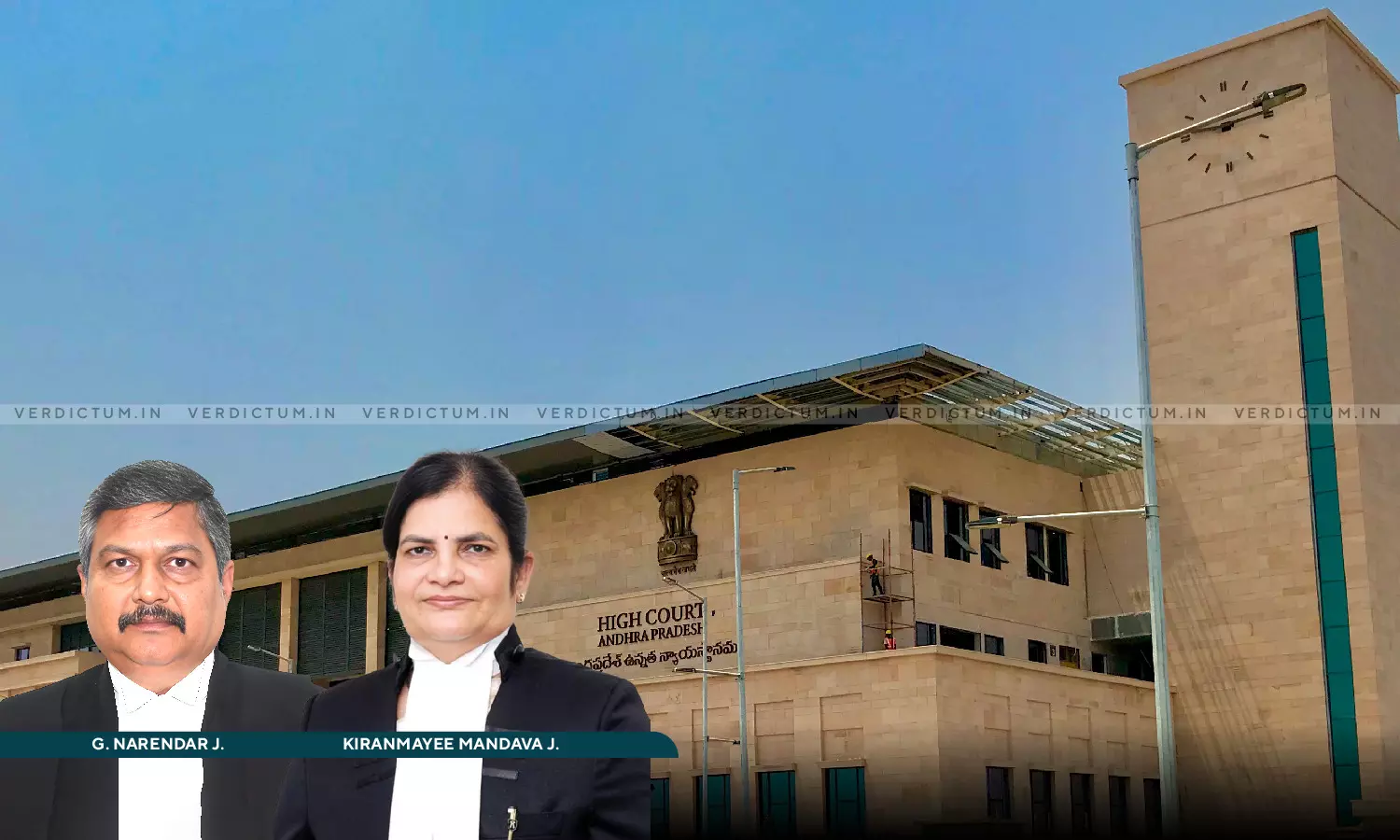
Assessing Officer Must Record Satisfaction Before Referring Penalty Cases U/s. 271D Of IT Act To Superior Officer: Andhra Pradesh HC
 |
|The Andhra Pradesh High Court ruled that an Assessing Officer (AO) cannot refer a taxpayer’s file to the Joint Commissioner of Income Tax for imposing a penalty under Section 271D of the Income Tax Act, 1961, without first recording their “satisfaction” regarding a violation.
In the case at hand, the petitioner challenged penalty proceedings initiated under Section 271D. The AO alleged that the petitioner could not justify cash transactions totalling ₹6.65 crores with an individual, noting that the petitioner had also paid over ₹1 crore beyond the accepted loans. Conversely, the petitioner maintained that they did not engage in any cash transactions and claimed that all dealings occurred through banking channels.
The AO pointed to a letter allegedly from the petitioner acknowledging a loan of ₹6.3 crores from that individual, which included pledging immovable property as collateral. Based on this, the AO concluded that the petitioner had financial dealings outside the formal banking system and subsequently referred the case to the Joint Commissioner, who initiated penalty proceedings.
A Division bench of Justice G. Narendar and Justice Kiranmayee Mandava said, “the satisfaction of the Assessing Officer is required to be recorded because the officer, who passed the assessment order would not be levying the penalty under Sec.271D of the Act, unless it is recorded in the assessment order, he cannot refer the file to superior officer i.e., Joint Commissioner, for initiating levy of penalty. Unless the Assessing Officer, who is the primary authority, based on the material before it, during assessment proceedings, arrives at a finding that there has been a violation of the provisions, like in the present case, of Section 269SS, there will not be any occasion to the Joint Commissioner, who is not the Assessing Officer, to exercise his jurisdiction to levy Penalty under Section 271D.”
Senior Standing Counsel Vijay Kumar Punna, appeared for the respondents.
Section 271D outlines penalties for taxpayers who accept loans or deposits in violation of Section 269SS, which requires that all loans or deposits exceeding ₹20,000 be transacted through banking channels.
The petitioner contended that the assessment order did not record any satisfaction regarding the imposition of penalties under Section 271D.
The Department countered that an alternative remedy of appeal existed under the Income Tax Act, suggesting that the writ petition was not maintainable. However, the High Court rejected this argument, noting that the AO had relied solely on the petitioner’s letter without documenting any finding of a violation of Section 269SS.
The Court said, “...nor was any satisfaction recorded to the effect that the alleged transaction of acceptance of loan would attract penal consequences. In the absence of any finding to the said effect, in our considered view, the penalty cannot be levied.”
It further asserted that without a finding from the AO confirming a violation, it could be inferred that the department accepted the petitioner’s explanation denying the cash loan allegations. Therefore, it concluded that the AO, satisfied with the petitioner’s explanation, failed to document any violation of Section 269SS, and consequently did not intend to impose a penalty under Section 271D.
As a result, the Court allowed the writ petition and quashed the order imposed under Section 271D.
Cause Title: Grandhi Sri Venkata Amarendra v. Joint Commissioner Of Income